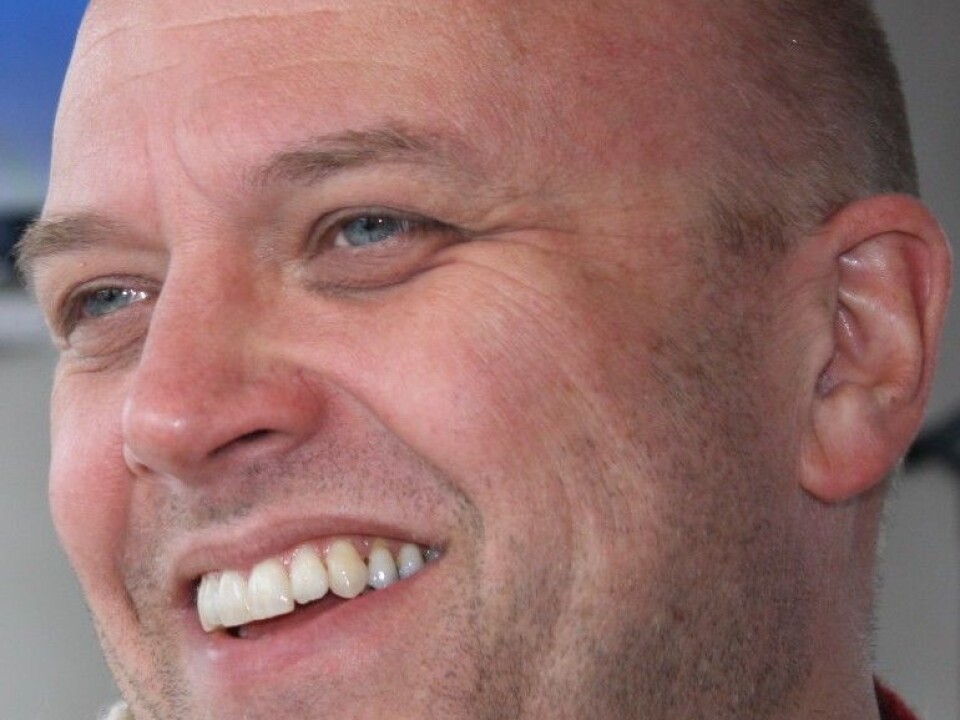
Cries for help on mental health websites must also be heard offline
Online mental health services help people via emails and text messages. But researchers worry that their problems will stay online and fail to influence health policy in the offline world.
Denne artikkelen er over ti år gammel og kan inneholde utdatert informasjon.
“I’m convinced I’ll end up as a loner,” writes a Norwegian girl about her future at high school. She has started a discussion thread titled “A horrible feeling” on a mental health website.
“I’m lonely too – I live my life by myself,” someone replies.
“It feels like no-one wants to get to know me, and my low self-esteem stops me from reaching out to people,” the original poster responds.
“I know how you feel,” a third person says. “I can’t talk when I am around people.”

In Norway and Sweden, there are dozens of websites for people struggling with anxiety, loneliness, suicidal thoughts and other mental health issues.
Researchers Anders Johan Wickstrøm Andersen and Tommy Svensson at The Nordic Research Academy for Mental Health have examined the characteristics of more than 60 such sites, and they suggest that their popularity indicates a shift in mental health services.
A popular alternative to in-office counselling
These types of websites attract thousands of people who are just curious or in need of advice. The free-form world of the internet, and its anonymity, offers an alternative to in-office counselling.
Online, no question is too personal, embarrassing or revealing, and many find easy access to professional mental health advice valuable.
“Some of the services we’ve looked at are incredibly popular. The demand from users and visitors is enormous,” says Andersen. “I think the presence of such services will be even stronger in the future, as technology evolves.”
Most questions are answered by professionals
These services, often publicly funded and free to users, are typically run by mental health professionals.
“In about 60 percent of the mental health services we looked at, questions were answered by professionals,” he says, adding that some services have regular people who simply listen to what callers, texters and emailers have to say.
Online services typically encourage people to share their problems and experiences – either by contacting their professional staff directly, or by talking with other users in online forums.
Shorter waiting lists online
Online mental health services are common in countries like Australia and Canada, where visits to a local mental health clinic can be both expensive and time-consuming because of the geographic distances.
In Norway and Sweden, the popularity is best explained by free access, and by the fact that people seeking help through the traditional healthcare system are often placed on long waiting lists.
The researcher says that when people reach rock bottom, they feel an urgent need for help. Being signed up on a three-month waiting list to see a mental health professional might not be good enough for someone who has suicidal thoughts. But online, you can talk about this straight away.
A voice to the voiceless
The internet’s anonymity makes it easy for people to speak up about their sensitive problems and experiences, and without online mental health services, their voices might have gone unheard.
Andersen says he is impressed by the support and help that people get on mental health websites, and by the support users give each other.
“Initially I was sceptical about such websites, but I was moved and at times excited by how people talk with each other online,” he says. “It’s impressive to see how some people manage to connect, in writing, with devastated persons on a web-based service.”
The threat of “Big Pharma”
Internationally, it has been argued that big pharmaceutical companies might get involved in online mental health services and influence the advice people get, which may lead to a medicalisation of everyday life.
Many pharmaceutical companies can afford to offer people free advice, and they naturally have a vested interest in recommending people to treat their problems with drugs.
“They might tell people that if they take this particular pill, everything will be much better,” says Andersen, adding that they didn’t see much of this in their research. “But that might be because we examined services for mental health in general. It’s possible we would have found more of this if we searched specifically for depression.”
The debate must continue offline
Another worry about online services is that people’s problems stay in the internet forums and do not enter the public discourse and debates about mental health policy.
The researcher believes it is important that the mental health services share the information they get about what kind of problems people have and what type of help they need, so the debate can continue offline.
“We must ask if the services are doing a good enough job at conveying these at times desperate cries for help to society outside of the web. If not, they might be stuck in an isolated, online community.”
The demand for help from the mental health services is also a statement about our society.
“The loneliness people feel has become so great that one has to log-on to the internet to find a supporting and caring community. That’s a challenge for society. It’s really a political challenge,” says Andersen.



































